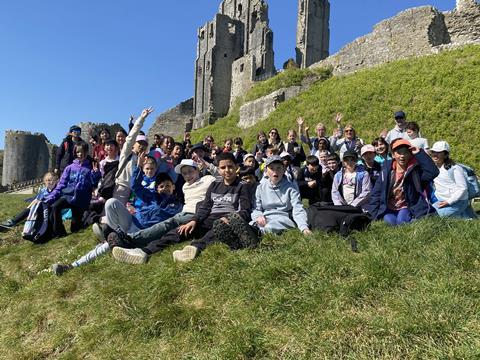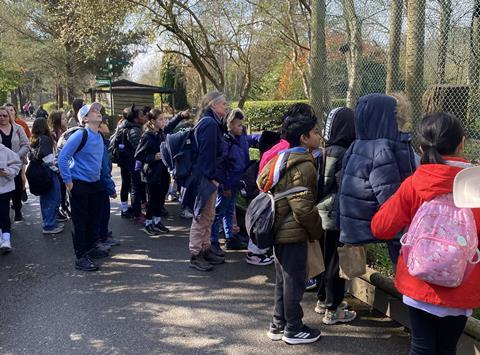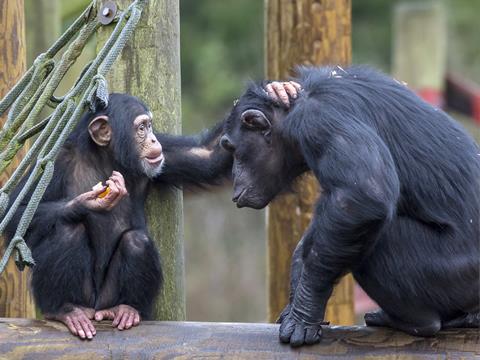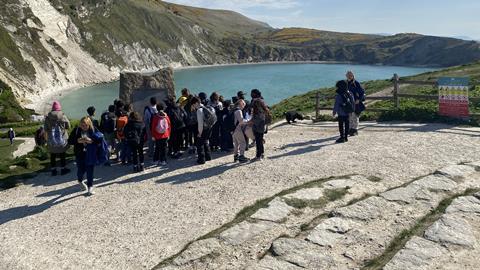A Milton Keynes primary school chose Swanage as their new residential destination to support geography curriculum requirements. Teacher, Sam Hawkes reports back.
The lovely Year 5 children at Giles Brook School were fortunate enough to travel to Swanage on the Dorset coast for their residential this year, a new location for us as a school and it did not disappoint.
When it came to deciding where we might want to go to link to our learning topics, it was important to make sure there were a variety of activities the children could take part in – and for it to be guided, so we could be led by the experts at the attractions we visited.
School: Giles Brook Primary School, Milton Keynes
Subject: Geography
KS: 2
Number of pupils: 55
Previously we went to Sheringham in Norfolk for our residential, but with the geography curriculum changes we’ve got to do a marine study. In Milton Keynes we don’t have oceans or seas anywhere near us, so it was about trying to find somewhere that fitted those elements in. That’s why we picked Swanage.

We stayed in the YHA in the town centre, the perfect location for a short walk to the beach. The children enjoyed the location and having the independence of being away from home and choosing who they’d like to share a room with. There was a cooked breakfast and dinner each day of our stay, as well as a delicious, packed lunch to take on the days out.
We were there for three days, and what a busy few days we had exploring the local sights. It began with lunch and a guided tour around Corfe Castle on day one. Although it didn’t fit specifically with any of our topics the children were able to learn about castle life and they enjoyed exploring the different areas of the castle still standing. It was nice for the group to visit somewhere they wouldn’t see in and around Milton Keynes. It’s a lot bigger than it looks from the road and you don’t realise how much is there until you get to it.

On day two, it was a trip to Lulworth Cove, which was a really good location for the children to expand on their knowledge of coastal erosion and do fossil hunting on the beach, which they loved. This helped build on their knowledge from Year 4 when they were learning about different types of rocks. It was nice for the group to have this active element as they can get fidgety and a bit fed up if they are not kept stimulated. Afterwards there was even time for an ice cream to finish off the day before a tour along Swanage Pier.

On their final day, the children were treated to a conservation talk and tour around Monkey World which is 30 minutes’ drive from Swanage between Bere Regis and Wool. It is home to over 250 primates, has three play areas and a massive 65 acres to explore.
Visiting Monkey World worked well because earlier in the year we had learned about Jane Goodall and her work with monkey conservation. The children were able to make the connection with someone they had learned about which helped keep them interested. And just as importantly, the gift shop meant there was somewhere they could finally spend their money before returning home!

Mr Almond and I led the trip and it’s always nice to see the kids outside of that classroom environment. Some of the children do get a little homesick, but being away from home and having a bit of independence is a good way for them to develop life skills. Experiencing things like packing their own bags, picking their food, serving themselves at breakfast - all those little things that they might not get to do at home helps them develop and grow.
”Overall, the trip was a big success. You can talk about places and show pictures, but I think it’s definitely good for the children to experience things for themselves in real life. You can see them making their connections and when they come back, they’re more enthusiastic and more engaged.”
Sam Hawkes
Monkey World for school groups
Students can see conservation in action, as animals stolen from the wild into the black market trade are rehomed at the centre. Schools can choose from a range of talks and curriculum-linked workshops suitable for all ages and levels of study. Topics such as rainforests, evolution, adaptation and nutrition are brought to life and pupils will walk away with a better understanding of our primate cousins and their lives, as well as empathy and compassion for their welfare.

For older children, schools can purchase the self-guided tour for a discounted rate which promotes independent learning, as children can follow the tour around the park and gather information at each point.
Support is offered to teachers through pre-visit plans, teacher packs and additional resources post-visit. You can get in touch with the dedicated team for the details.
Tell us about the educational visits and residentials your school has been on by emailing editorial@schooltravelorganiser.com.











